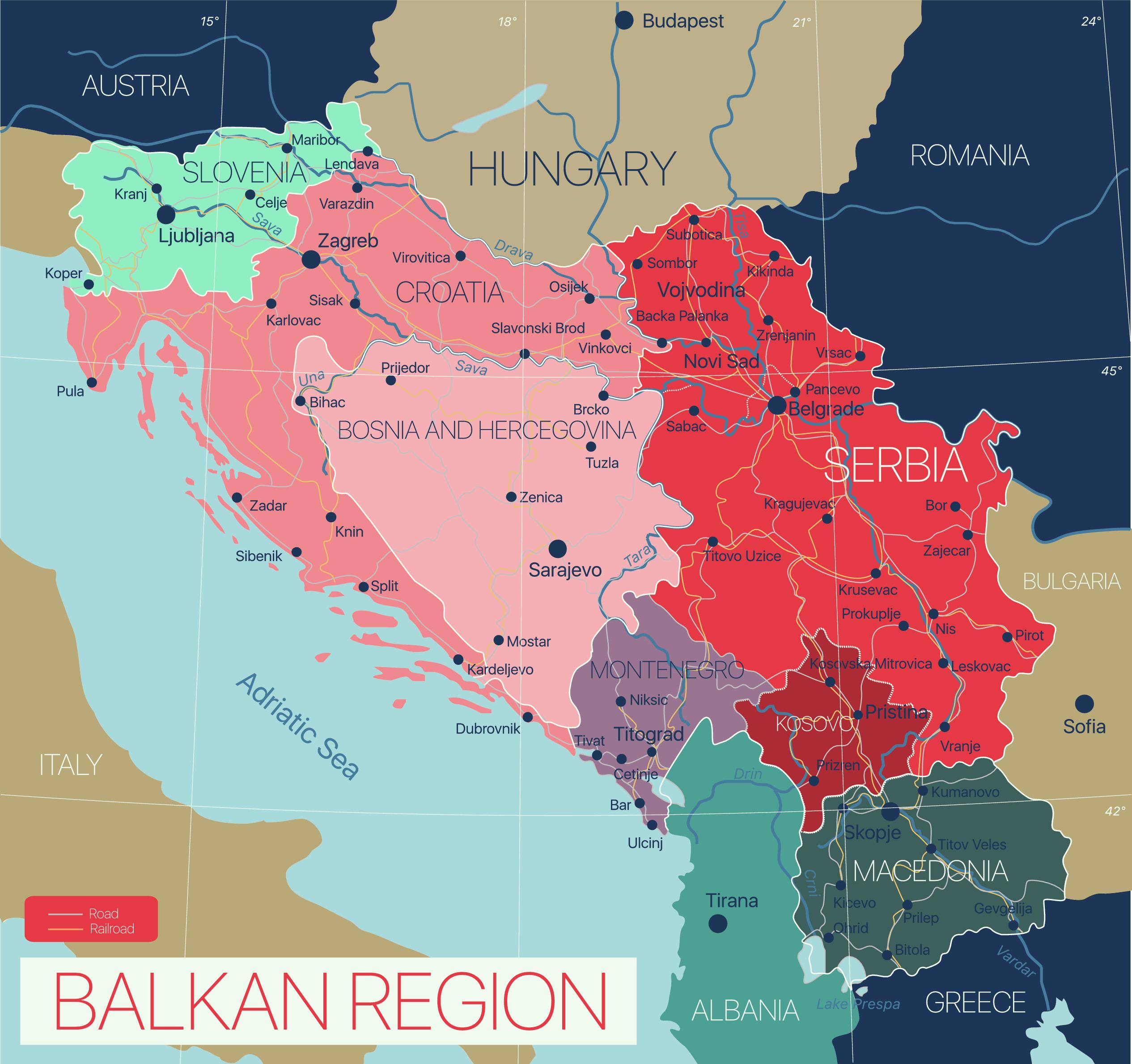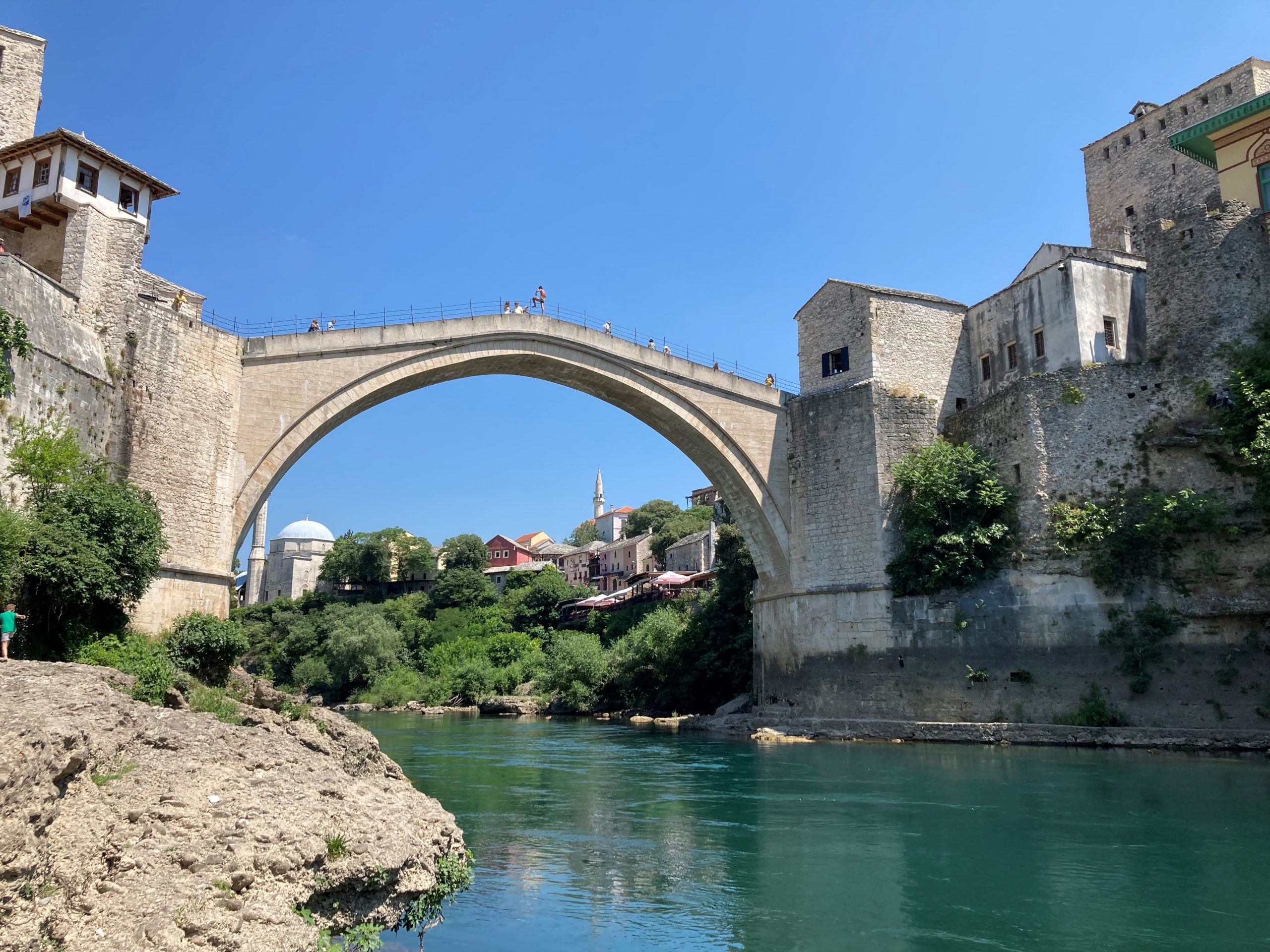Political problems of Bosnia and Herzegovina – a view from the inside of the country
Ivan Iliev
Bosnia and Herzegovina (BIH) has been suffering from years of political problems. The country has been locked in a permanent crisis. Where one hindrance ends, the other starts – and the situation has been repeating for years. What is more, citizens of Bosnia and Herzegovina themselves argue about the abandonment of the European Union’s effort to help the country. There remain signs of hope for a better future in Bosnia and Herzegovina. However, on-going political problems leave no space for the country’s development.
To directly name today’s Bosnia and Herzegovina issues, we have conducted research about the topic. Researchers from the Strategic Analysis think tank have interviewed young political experts from Bosnia and Herzegovina about their views on the problems in the country. The interviews were held under Chatham House rules for greater openness of interviewees. They have recognized the following most pressing political matters Bosnia and Herzegovina is facing currently.
The political problems of today’s Bosnia and Herzegovina
The first among many problems is corruption. As stated by interviewed young experts, corruption is ubiquitous – in police, judiciary, state institutions, healthcare, education etc. One example mentioned during interviews is the High Judicial and Prosecution Council of Bosnia and Herzegovina, which has been considered the subject of manipulations and intrigues over the years. Experts noted that corruption does not fade because of lack of cooperation between judiciary authorities – particularly said, on the one hand, there is a lack of communication between the prosecutors and investigators, and the other issue mentioned is the lack of communication between the prosecutors of the entities – Bosniak-Croat Federation and the Republika Srpska.
Experts also claim that people have adjusted to the corruption – the BIH citizens tolerate this system. Consequently, it is difficult to change something so rooted within state elites’ and ordinary citizens’ minds. Foreign and domestic commentators have been mentioning corruption for years as a problem in BIH and the Western Balkans in general.
The second problem mentioned during the interviews is the political situation that provides little space for change from inside. There prevails a common belief that the constitutional changes with the Dayton Peace Accord created an unstable political system. However, some experts from BIH disagree, opposing that the Dayton Peace Accord has made a system locked for any significant changes from the inside. To prove these views, experts mentioned that not a single initiative for constitutional reforms came from within or from the fundamental political forces in the country recently. The current system works as coverage for ethnic-based parties in power, as the system has been designed to protect ethnic groups and ethnic divisions. Experts explain that this can be seen at local levels where ethnic parties have developed strong bonds and share political power. To prove their claims, one of the experts mentions that this problem is evident in the Canton of Central Bosnia. The SDA-HDZ bloc (these parties represent two ethnicities) controls every aspect of the canton’s and municipalities’ life regardless of election results.
Consequently, the system is stable but does not allow the country to move forward in any way. There have been numerous proposals from political parties to change it. Still, all the actual calls for changes and the actual voting on changes happened only after significant pressure from international actors and the community. Experts explain that the current system works excellently for the key ethnic-political parties because it is created to benefit ethnic elements and their representatives. In such a political atmosphere, the political system BIH citizens have today provides ethnic-based parties with a high level of political security and guarantees that these parties will gain and control political processes at different levels of governing, at least to some extent. The proof for these claims should be that crucial political leaders from ten to twenty years ago are still the deciding heads in BIH even today. Even if some have moved to the less visible positions, experts stress that these figures still influence politics from the local to the national level. Experts also add that internal changes within political parties have a limited effect on how these parties perform in the political arena. The system is designed to give political power to the actors most involved in the process.
„The current system allows political parties in BIH to translate their internal interests into ethnic interests and, with that made possible, to create a potential fight between ethnicities – or to present their need to control financial and political institutions as a fight for the protection of ethnic groups the parties claim to embody. „
Another problem mentioned during the interviews is the political fight of ethnopolitical parties for financial resources. The political parties produce tensions regarding financial resources management. Parties are fighting to gain control over resources in each political system. However, interviewed young experts claim that the fight to control resources in Bosnia and Herzegovina transforms into a battle between ethnicities because the system is created to support them. The current system allows political parties to translate their internal interests into ethnic interests and, with that made possible, to create a potential fight between ethnicities – or to present their need to control financial and political institutions as a fight for the protection of ethnic groups the parties claim to embody. In such a system, everything becomes ethnically based, from deciding to build a road to the appointment of who will be in charge of any position in the country. That is why external actors, and citizens of BIH as well, have a feeling the country is in a constant state of collapse. Still, in reality, this is just a manifestation of the fight to control financial resources. Interviewed experts believe that the ethnical battle for financial means is just a camouflage. They claim that ethnicity does not matter for political parties, but „playing the ethnical card“ in the fight for resources works for the parties, as people in Bosnia and Herzegovina still react to ethnically motivated political parties especially at the local level.
Interviewed experts also claim that there exists an issue related to the EU. They claim that this is instead a problem of the EU and not the one of BIH, but it affects the country. According to some of the interviewed young experts, the EU is not doing the job properly and thus blamed for the lack of interest. They claim that the EU has surrendered the idea of helping Bosnia and Herzegovina to become a member state. The EU is also being blamed for the lack of support for opposition media. Some interviewed experts claim that the EU has not supported the creation of media that would oppose current politicians and, consequently, slower democratization. Also, there has been a complaint that the EU has not done enough to bring foreign investors into the country throughout the years. Even international experts on the Balkans claim that the EU should dispense more effort in BIH. Otherwise, the country would be a failed case of the EU enlargement policy.
Last but not least, experts recognize that there is a problem of creating instability within the country by the external forces, i.e. geopolitical changes with two entities following two opposite geopolitical directions. Experts believe this is a new and potentially the most severe long-term issue Bosnia and Herzegovina might face and could rip the country apart. Still, it depends on the strength and engagement of the EU on one side and Russia on the other side on issues related to BIH. Interviewed experts explain that Republika Srpska is trying to develop its geopolitical agenda following Russia because it allows this entity to gain geopolitical recognition. On the other hand, the Federation (Bosniak-Croat entity) is instead looking at the EU and NATO. Therefore, the constant struggle on which side to move on is present in BIH, and the situation makes the country struggling and stagnating.
Conclusion
Bosnia and Herzegovina is caught in a prolonged on-going political crisis. Omnipresent corruption, ethnic-based tensions, politicians causing the stagnation of development, or the perceived lack of EU’s effort to help Bosnia and Herzegovina. These are just some among many of the problems the country is grappling with. However, mentioned issues are recognized as the most pressing problems by the experts from Bosnia and Herzegovina interviewed by the Strategic Analysis. There is a way of dealing with these problems, but BIH needs a political will to tackle them at first. Without the desire to change the country for the better, nor the EU, neither international community can make positive changes in this Balkan country. However, some interviewed young experts have expressed an opinion that positive changes are happening in Bosnia and Herzegovina. Therefore, the Strategic Analysis will seek to publish an article about positive changes in the country in the near future.
Ivan Iliev is a research fellow for the Balkans at the Strategic Analysis Think Tank.



Contact us